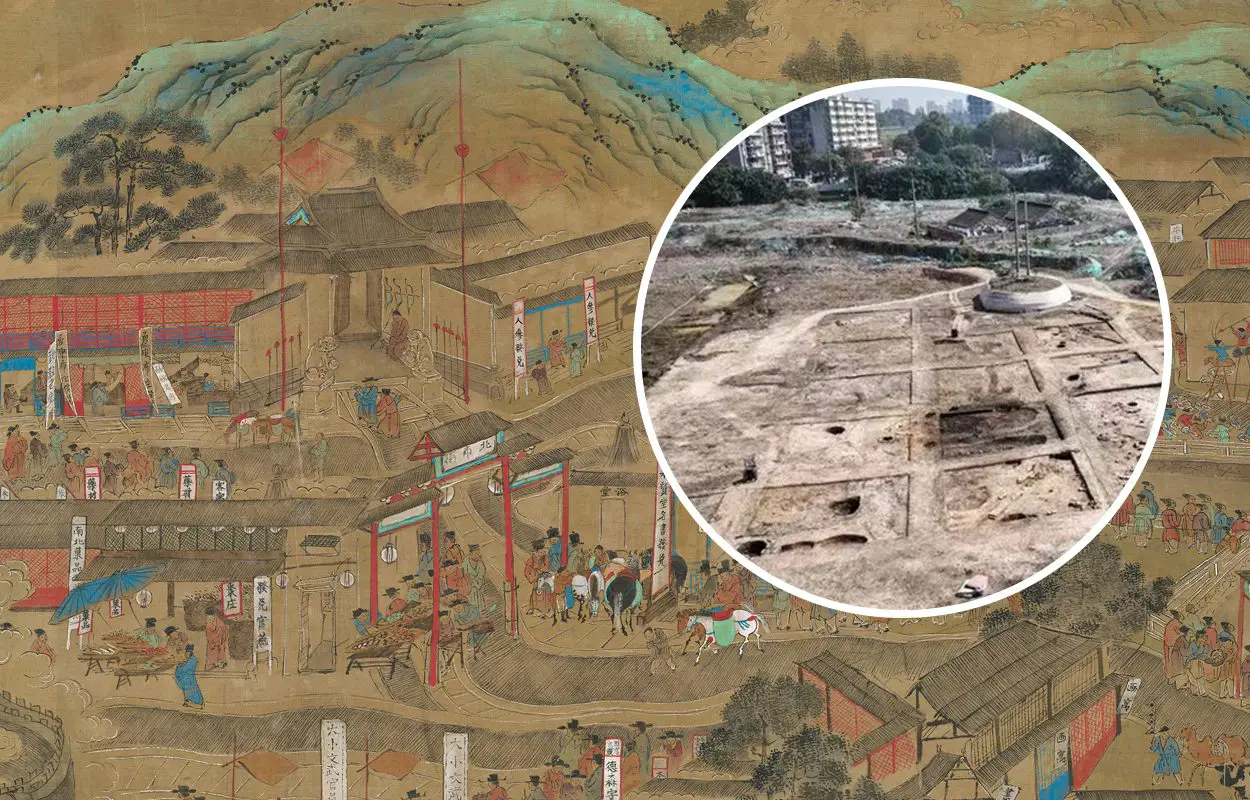Archaeologists excavating in Nanjing have uncovered the ancient city of Changgan from Li Bai’s “Ballad of Changgan”.
The discovery was made in present-day Nanjing, the capital of Jiangsu province, China, during excavations near the Porcelain Tower of Nanjing, also known as the Great Bao’en Temple.
Excavations revealed evidence of occupation dating back more than 3,000 years during the Shang (1600 BC-1046 BC) and Zhou (1046 BC-256 BC) dynasties, while occupational evidence from the Tang period has led to the discovery of the ancient city of Changgan.
The city is mentioned in the “Ballad of Changgan”, composed by Chinese poet, Li Bai (AD 701- 762), during the reign of Emperor Xuanzong.
This poem centres around a tale of love, where Li Bai narrates the story of a young girl who weds a boy at the age of fourteen. The poet delves into the girl’s inner thoughts, detailing her emotional journey as she matures, and her reactions upon reaching fifteen and her preparations for the solitude that awaits her at sixteen. Upon her husband’s departure, she grapples with intense loneliness, finding life devoid of meaning. The poem concludes on an elegiac note, capturing the yearning of a solitary girl for her absent husband, yet to return from his journey.
The team found wall foundations and circular trenches that played a role in the city defence, in addition to water wells, kilns, and a sacrificial pit for swine. Wang Wei, president of the China Council of Archaeology, said: “The dating of the discovery places it around 3,100 years ago. It stands as a notable archaeological find for Nanjing in 2023.”
Excavations also revealed numerous artefacts, including ceramic pieces with triangular decorations, ding ware used as ritual food vessels, swine bones, and over 10,000 objects providing new insights into the people that lived in Changgan.
Header Image Credit : xhby





